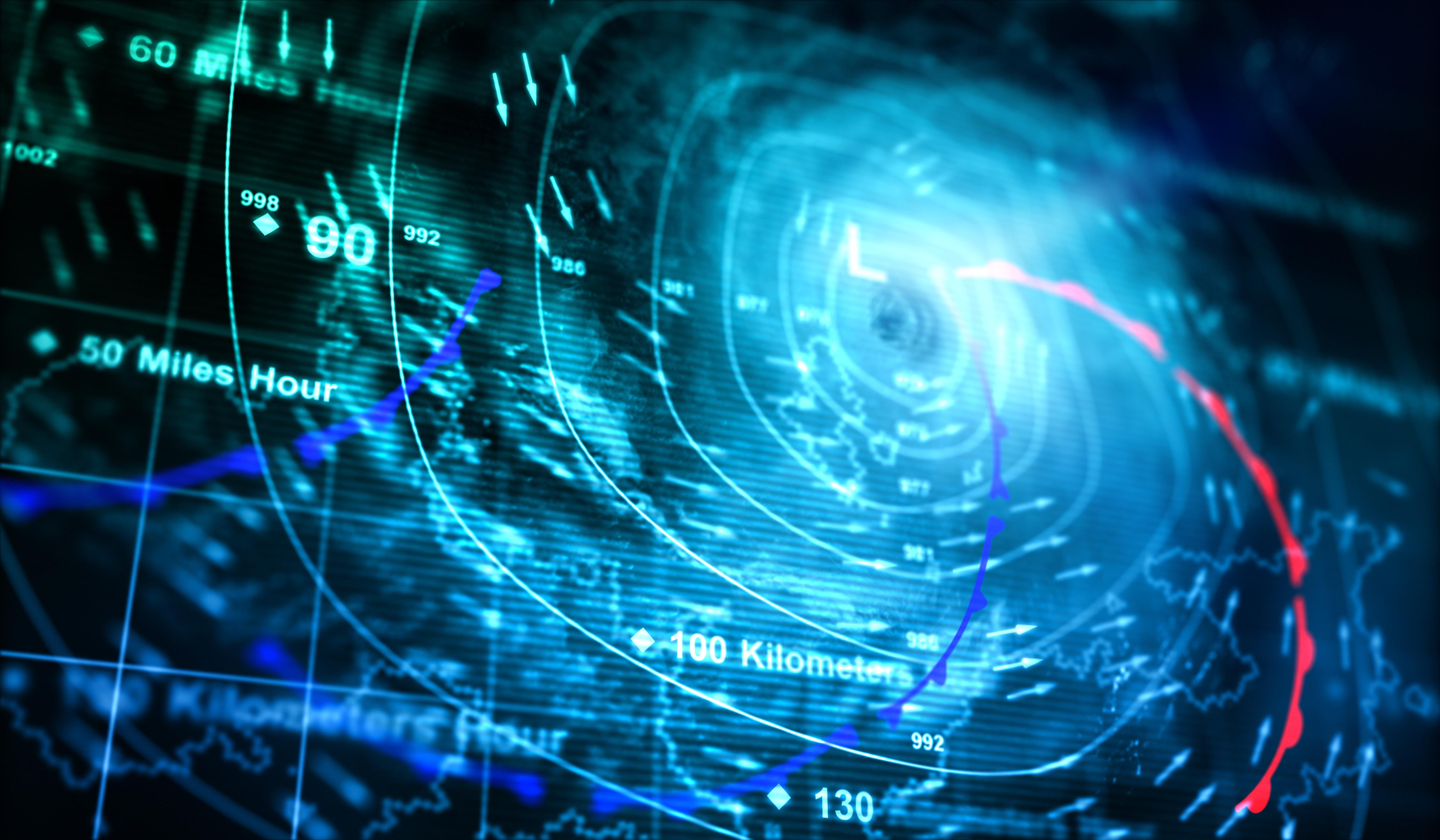
Two faculty members in the University of Maryland Institute for Advanced Computer Studies (UMIACS) are combining their expertise in artificial intelligence (AI) and the study of the Earth’s systems, known as geoscience, to improve weather and climate forecasting for underserved communities.
Maria Molina, an assistant professor of atmospheric and oceanic science, and Chris Metzler, an assistant professor of computer science, are developing novel AI-based approaches to help address systemic inequities and improve the lives of populations that are vulnerable to extreme weather events.
Their work, supported by an $814K award from the National Science Foundation (NSF), will help both experts and non-experts better contextualize uncertainty and inequity in predicting extreme weather and threatening climate conditions.
For example, the researchers say, Black populations are often underserved by existing weather radar systems and therefore may receive less accurate forecasts. Many of these same marginalized communities already struggle to recover from extreme weather events and are expected to experience disproportionate impacts from climate change.
“The growing use of AI models in geoscience has made the largely open challenge of accurately and reliably quantifying uncertainty and inequity more important than ever,” says Molina.
The NSF award is part of a new program that promotes transdisciplinary collaborations among geoscientists, computer scientists, mathematicians and others to develop innovative AI techniques that advance understanding of Earth’s complex systems.
The project by Molina and Metzler was one of only 25 nationwide selected to launch the $20 million program.
The UMIACS researchers plan to develop three algorithmic innovations: a computationally efficient framework that’s capable of producing easily interpretable estimates of uncertainty in geoscience; generalizable metrics that quantify inequities in an Earth system model performance; and a novel AI-ready multimodal geoscience dataset.
Both undergraduate and graduate students in the Department of Atmospheric and Oceanic Science and the Department of Computer Science will be trained to collaborate on all three parts of the project, Metzler says. This cross-disciplinary collaboration will help to meet workforce demands for scientists with experience in both geoscience and AI, he adds.
This new NSF project builds on the duo’s previous one that was funded by the University of Maryland Grand Challenges Grants Program.
Through that initial $500K in funding, Molina and Metzler developed a new machine learning model that can reduce two types of uncertainty when applied to high-stakes applications like medical imaging and weather forecasting.
“The method builds off diffusion models, which sit at the heart of recent breakthroughs in generative AI,” explains Metzler.
A published paper on their work,“Hyper-Diffusion: Estimating Epistemic and Aleatoric Uncertainty with a Single Model,” was co-authored by Matthew Chan, a third-year computer science doctoral student advised by Metzler.